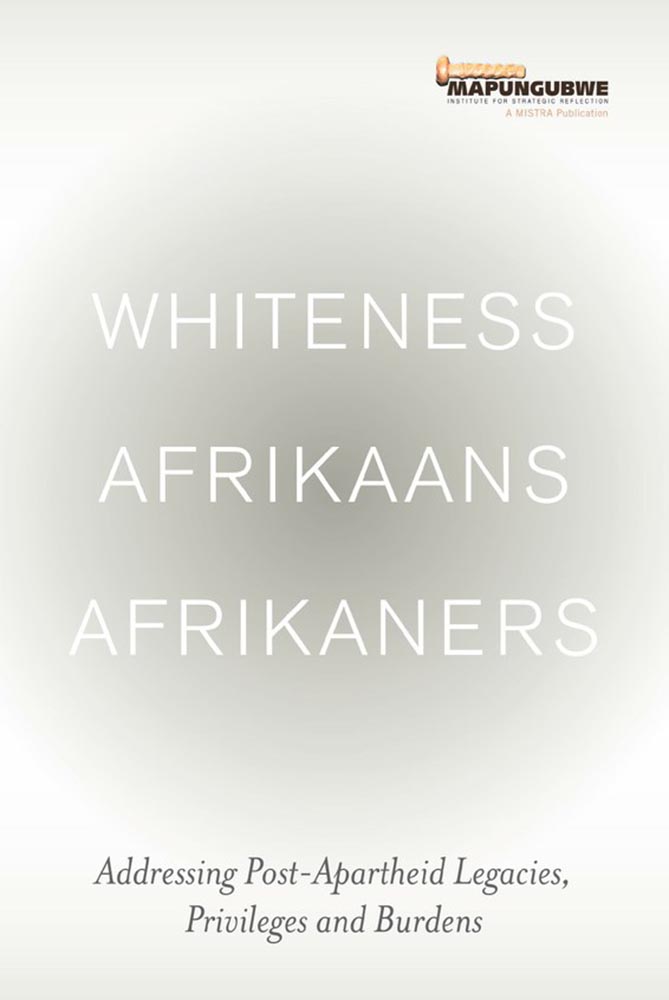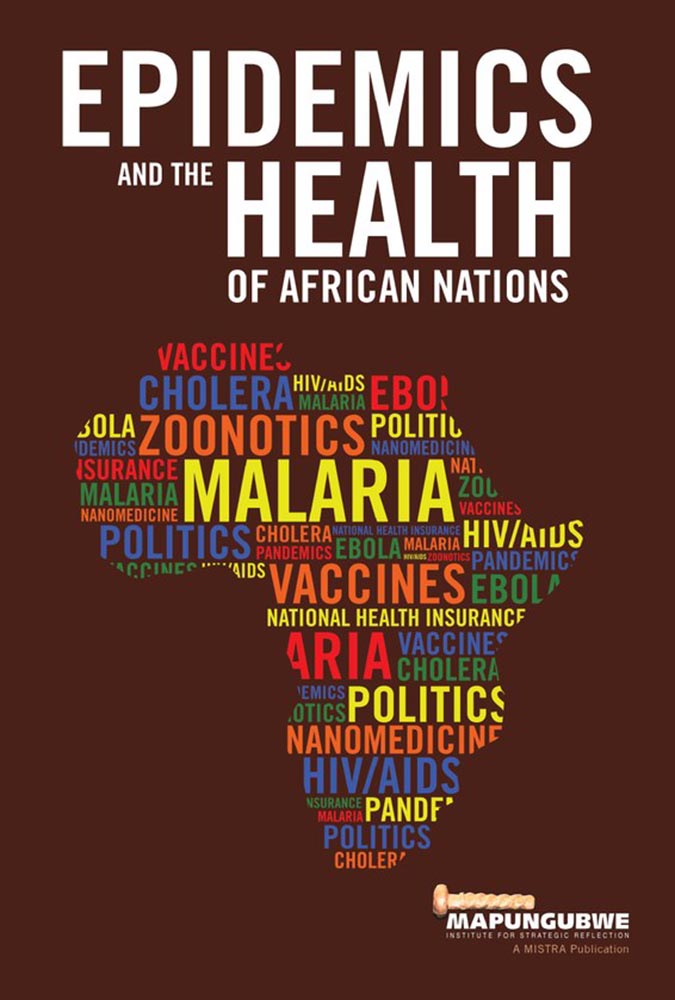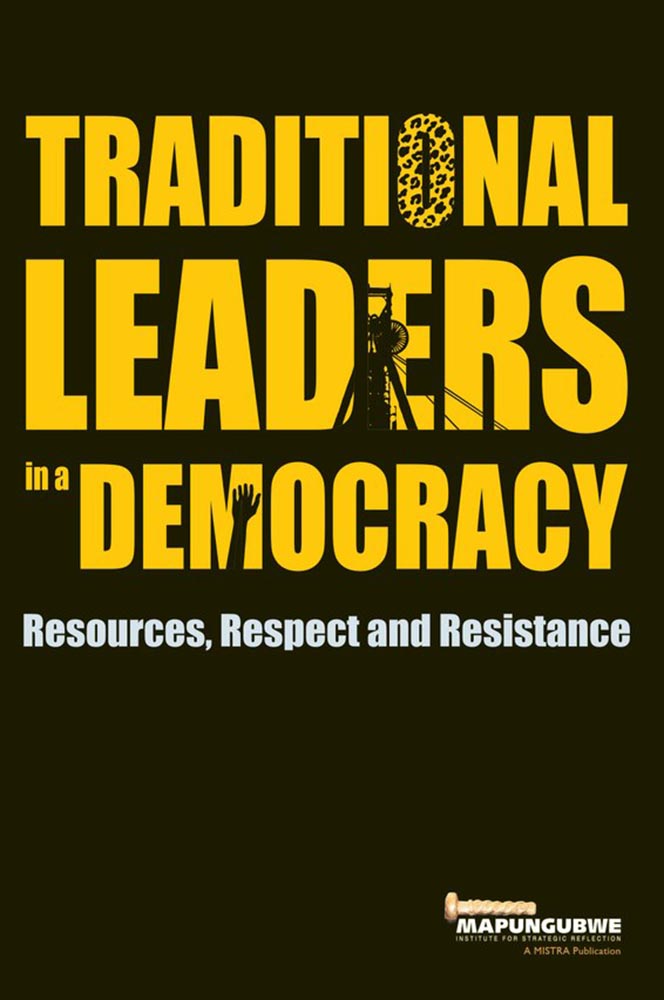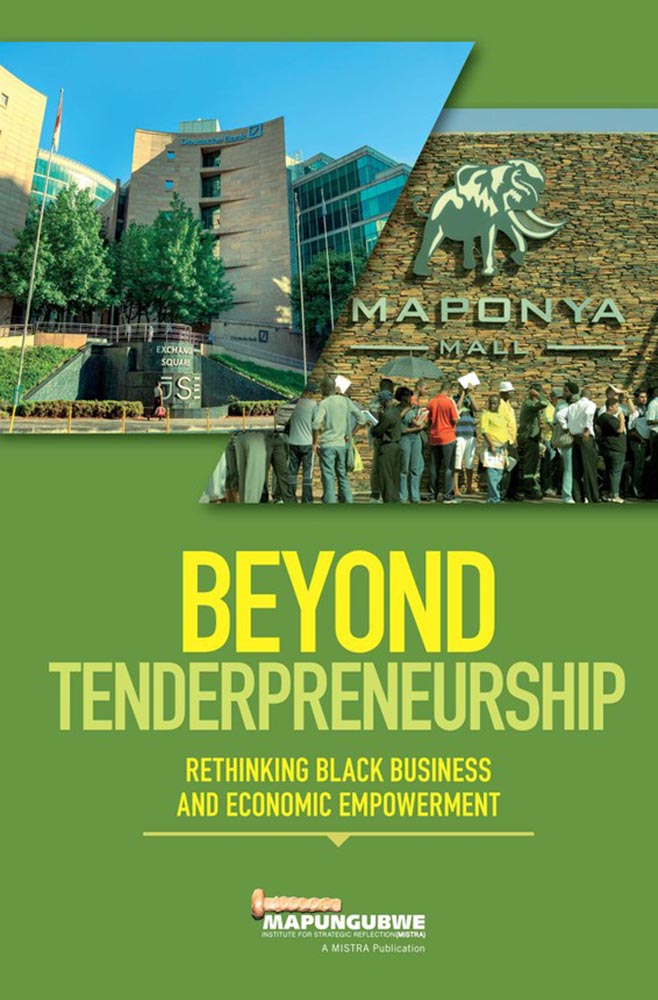Books by MISTRA

whiteness afrikaans afrikaners: addressing post-apartheid legacies, privileges and burdens
Do the erstwhile colonial settlers ñ who, unlike in most other parts of the postcolonial world, have decided in large numbers to make the country their permanent home ñ deserve equal recognition as members of the emergent nation?í South Africa has been reeling under the recent blows of an apparent resurgence of crude public manifestations of racism and a hardening of attitudes on both sides of the racial divide. To probe this topic as it relates to white South Africans, Afrikaans and Afrikaners, MISTRA, in partnership with the Friedrich Ebert Stiftung (FES) and the National Institute for the Humanities and Social Sciences (NIHSS), convened a round-table discussion. The discourse was rigorous. This volume comprises the varied and thought-provoking presentations from that event, including a keynote address by former president Kgalema Motlanthe, inputs from Melissa Steyn, Andries Nel, Mary Burton, Christi van der Westhuizen, Lynette Steenveld, Bobby Godsell, Dirk Hermann (of Solidarity), Ernst Roets (of Afriforum), Xhanti Payi, Mathatha Tsedu, Pieter Duvenage, Hein Willemse and Nico Koopman, and closing remarks by Achille Mbembe and Mathews Phosa. It deals with a range of issues around ëwhitenessí in general and delves into the place of Afrikaners and the Afrikaans language in democratic South Africa, demonstrating that there is no homogeneity of views on these topics among white South Africans overall and Afrikaners in particular. In fact, in these pages, one finds a multifaceted effort to scrub energetically at the boundaries that apartheid imposed on all South Africans in different ways.

epidemics and the health of african nations
News footage of disease in Africa is a familiar sight. Yet these outbreaks are often presented out of context, with no reference to the conditions that have triggered them. MISTRA’s new book, Epidemics and the Health of African Nations, aims to redress that. Researchers and practitioners from within the continent explore why Africa is so vulnerable to disease, and show how this vulnerability is closely linked to political and economic factors. They demonstrate how these same factors determine the way epidemics are treated. Authors extract lessons from case studies in different parts of Africa; challenge conventional frameworks about disease to argue for a ‘syndemics’ approach that takes into account the interrelationship between disease and political and socio-economic contexts; explore challenges of Africa’s future. They argue that a well-functioning health system is at the core of a country’s capacity to counter an epidemic. This volume brings African experts together to probe possible solutions to the continent’s heavy burden of disease. The insights offered will be helpful in devising policy for the control of disease and the combatting of epidemics in Africa.

traditional leaders in a democracy. resources, respect and resistance
Post-1994, South Africa's traditional leaders have fought for recognition, and positioned themselves as major players in the South African political landscape. Yet their role in a democracy is contested, with leaders often accused of abusing power, disregarding human rights, expropriating resources and promoting tribalism. Some argue that democracy and traditional leadership are irredeemably opposed and cannot co-exist. Meanwhile, shifts in the political economy of the former bantustans ? the introduction of platinum mining in particular ? have attracted new interests and conflicts to these areas, with chiefs often designated as custodians of community interests. This edited volume explores how chieftancy is practised, experienced and contested in contemporary South Africa. It includes case studies of how those living under the authority of chiefs, in a modern democracy, negotiate or resist this authority in their respective areas. Chapters in this book are organised around three major sites of contest: leadership, land and law.

beyond tenderpreneurship. rethinking black business and economic empowerment
Black Economic Empowerment (BEE) policies have been a central pillar of attempts to overcome the economic legacy of apartheid. Yet, more than two decades into democracy, economic exclusion in South Africa still largely re?ects the fault-lines of the apartheid era. Current discourse often con?ates BEE with the so-called ‘tenderpreneurship’ referred to in the title, namely the reliance of some emergent black capitalists on state patronage. Authors go beyond this notion to understand BEE’s role from a unique perspective. They trace the history of black entrepreneurship and how deliberate policies under colonialism and its apartheid variant sought to suppress this impulse. In the context of modern South Africa, authors interrogate the complex dynamics of class formation, economic empowerment and redress against the backdrop of broader macroeconomic policies. They examine questions relating to whether B-BBEE policies are informed by strategies to change the structure of the economy. These issues are explored against the backdrop of the experiences of other developing countries and their journeys of industrialisation. The relevant black empowerment experiences of countries such as the United States are also discussed. The authors identify policy and programmatic interventions to forge the non-racial future that the constitution enjoins South Africans to build.

Loading the next 20 Records..…